Covid 2024: Long Covid may lead to measurable cognitive decline, study finds
A new study has added to the increasingly worrisome picture of how even mild Covid cases have detrimental effects on the brain. See how.
Illness
Don't miss out on the headlines from Illness. Followed categories will be added to My News.
Long Covid may lead to a measurable impact on people’s thinking and memory skills more than a year after infection, experts have found.
In a study published in the New England Journal of Medicine, researchers looked at how much cognition is impaired in the months after a coronavirus infection.
Cognitive testing of nearly 113,000 people in England found that those with persistent post-Covid symptoms scored the equivalent of six IQ points lower than people who had never been infected with the coronavirus.
Researchers from Imperial College London also found that even people who recovered from their Covid symptoms in four to 12 weeks had the equivalent of an IQ score three points lower than in uninfected people.

For people whose disease was severe enough to require hospital care, the deficit deepened to nine points.
The differences in cognitive scores were relatively small, and neurological experts cautioned that the results did not imply that being infected with the coronavirus or developing long Covid caused profound deficits in thinking and function.
However, the experts said the findings are important because they provide numerical evidence for the brain fog, focus and memory problems that afflict many people with Long Covid.
“What our study shows is that brain fog can correlate with objectively measurable deficits in a person’s actual memory and executive task performance,” lead study author Adam Hampshire said.
Senior study author Paul Elliott said: “We don’t know what the clinical and cognitive long-term effects might be,” for people still living with Long Covid.
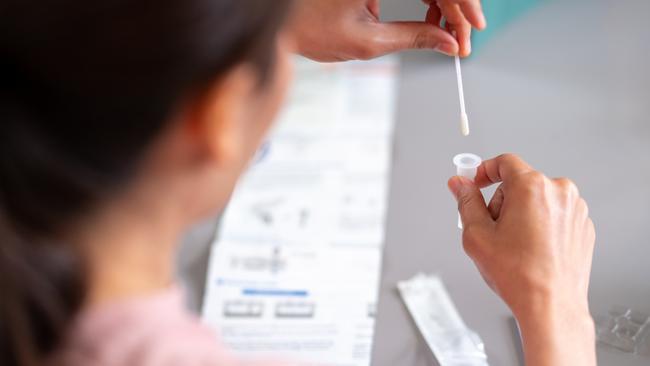
“And so following that cohort, we think, is very important in doing ongoing surveillance.”
The study involved 112,964 adults who completed an online cognitive assessment during the last five months of 2022.
About 46,000 of them, or 41 percent, said they had never had Covid. Another 46,000 people who had been infected with the coronavirus said their illness had lasted less than four weeks.
About 3200 people had post-Covid symptoms lasting four to 12 weeks after their infection, and about 3900 people had symptoms beyond 12 weeks, including some that lasted a year or more.
Of those, 2580 people were still having post-Covid symptoms at the time they took the cognitive test.
COVID-19 2024: YOUR QUESTIONS ANSWERED
More than 1000 Australians a day are catching Covid. And if it is six months since you had your last Covid vaccine or infection you are vulnerable, experts have warned.
Unlike the flu, Covid is not seasonal evidenced by the fact Australia recently weathered a peak in infections in the middle of summer, whereas influenza is traditionally a winter virus.
The vast bulk of the population has not had a recent booster jab against Covid and experts are calling on the Federal Government to provide more clarity to Australians about when they are eligible.
Immunisation Coalition’s Dr Rod Pearce said if you are aged over 30 you should speak to your doctor about whether to get a booster jab every six months.
University of Queensland’s Professor Paul Griffin said “if you haven’t had one for 12 months, you are probably eligible. And if you’re in the highest risk group (aged over 75), it’s probably six months.
“We can’t predict where the next wave will be. I guess the only thing we know for sure is it’s unpredictable and we need to be on the lookout for a new sub variant,” Professor Griffin said.
A Covid surge in December and January ruined Christmas holidays for many Australians but the wave has subsided.
Case numbers peaked at around 3000 per day before Christmas, according to Our World in Data, but by early this month had subsided to just over 1100 per day.
It comes as the one million Australians struggling with Long Covid could get new hope from a clinical trial of low dose medicine Naltrexone which has shown promise in combating low energy, brain fog and memory loss in people with a similar condition – Myalgic encephalomyelitis/chronic fatigue syndrome (ME/CFS).
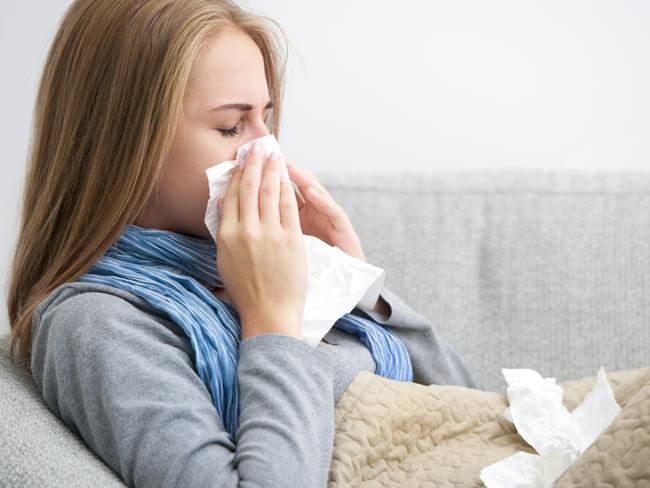
WHICH COVID VARIANT IS DOMINANT?
The JN1 variant is the most dominant type of Covid circulating in Australia and globally accounting for over nine in 10 cases in some states.
HOW MANY PEOPLE ARE IN HOSPITAL WITH COVID?
The number of people admitted to hospital with Covid around Australia dropped from 218 on January 4 to 112 by February 6, Health Department data shows.
HOW MANY PEOPLE ARE IN ICU WITH COVID?
The number of people in Intensive Care Units has nearly halved from 73 on January 7 to 49 on February 6.
HOW ARE AGED CARE FACILITIES IMPACTED BY COVID?
Breakouts in aged care have also fallen from 426 on January 11 to 253 on February 6.
HOW MANY PEOPLE ARE DYING FROM COVID?
On average 10 people a week were dying from Covid in mid January but that had fallen to two people a week by February 6.
IS THE COVID DATA RELIABLE?
The Covid data is not as reliable as earlier in the pandemic because people no longer have to report the results of their rapid antigen tests. But hospitalisation rates and sewage testing suggests the Christmas outbreak has subsided.
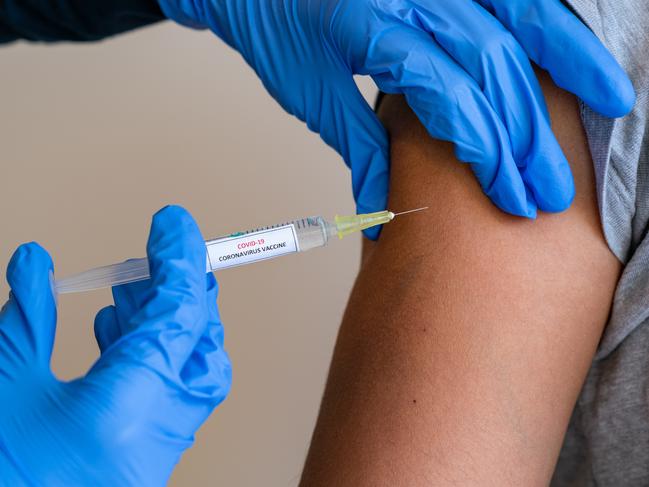
HOW MANY PEOPLE HAVE COVID IN NSW?
So far this year there have been 22,075 cases of Covid reported in NSW. In the fortnight ending February 17 there were 4858 cases reported.
HOW MANY PEOPLE HAVE COVID IN VICTORIA?
The number of people in hospital with Covid-19 has increased in the week ending February 23 to a 7-day average of 178, compared to 156 last week.
The 7-day average of ICU patients has also increased this week (4 to 7).
Deaths in the month to February 7 were down to 129 compared to the month before.
HOW MANY PEOPLE HAVE COVID IN QUEENSLAND?
In the week ending February 12 there were 1445 people diagnosed with Covid in Queensland, down from a peak of 18,29 on January 29.
HOW MANY PEOPLE HAVE COVID IN SOUTH AUSTRALIA?
There were 1479 cases of Covid in South Australia in the week ending February 16, this was an increase on the 1371 cases recorded the week before.
HOW MANY COVID CASES ARE THERE IN TASMANIA?
There were 673 new cases of Covid in Tasmania in the week ending February 22.
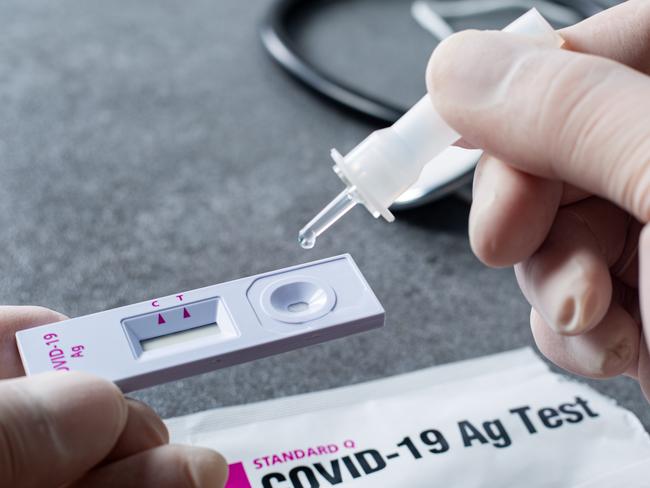
HOW MANY PEOPLE HAVE HAD THEIR COVID BOOSTER VACCINE?
On the last six months only 3.3 per cent of Australians aged 18-64 had a Covid booster jab.
One in five 65 to 74-year-olds have had a booster shot and 33.6 per cent of those aged over 75 are up to date with their Covid vaccination schedule.
WHO SHOULD HAVE A VACCINE?
Covid vaccines are still free and are available from General Practitioners and pharmacies.
A booster dose is recommended for people:
– aged 65 years and over
– aged 18 to 64 who have medical comorbidities that increase their risk of severe COVID-19
– aged 18 to 64 who have a disability with significant or complex health needs
You can also consider a Covid-19 booster dose if you have spoken with your healthcare provider and are:
– an adult aged 18 to 64 years without risk factors for severe Covid-19
– a child aged 5 to 17 years who has medical comorbidities that increase their risk of severe Covid-19 illness
– a child aged 5 to 17 years who has a disability with significant or complex health needs
A second Covid-19 booster dose is recommended for all adults aged 75 years and over
All adults aged 65 to 74 years, and adults aged 18 to 64 years with severe immune-compromise can get a second booster dose after discussion with their healthcare provider.
All boosters are available six months after the last dose received. If you’ve already had your recommended booster/s, you don’t need to get another dose, even if it has been six months since you had one.
HOW MANY FLU CASES ARE THERE?
There have been 16,029 notifications of laboratory confirmed influenza reported to the NNDSS (National Notifiable Diseases Surveillance System) in the year to 26 February.
Total notifications from each state and territory are as follows:
ACT: 260
NSW: 6675
NT: 81
QLD: 3900
SA: 922
TAS: 128
VIC: 3159
WA: 904
Source: Immunisation Coalition
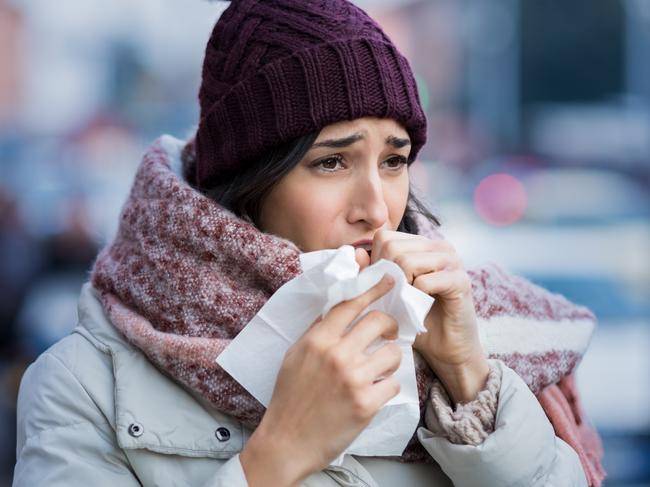
WHAT IS LONG COVID?
Up to one million Australians are suffering from Long Covid years after contracting the virus but a drastic shortage of treatment places mean they are unlikely to be getting help.
There are just 16 specialist Long Covid clinics around Australia which means each of them has the impossible task of dealing with 62,000 patients.
Long Covid is a set of more than 200 symptoms that follow the viral infection and persist for longer than three months.
They include fatigue, brain fog, breathlessness, headaches and gastrointestinal problems.
POTS – feeling dizzy and experiencing a fast heart rate when you transition from lying down to standing up.
Cardiovascular issues, depression and anxiety, insomnia, muscle and joint pain are also among symptoms.
A UK study found fatigue was the biggest problem affecting the lives of patients with Long Covid and that they had average fatigue scores similar to or worse than people with cancer-related anaemia or severe kidney disease.
The quality of life scores of people with Long Covid were lower than people with advanced metastatic cancers, such as stage 4 lung cancer.
WHAT CAUSES IT
Doctors are still researching the causes of Long Covid however Covid virus particles have been found to linger in the stomach and other organs for up to two years.
This is thought to lead to an overactive immune response that is behind the syndrome.
A Netherlands study found a possible explanation for the post exercise fatigue suffered by people with long Covid was that the virus altered their muscle structure.
The energy particles in their muscles called mitochondria were dysfunctional and weren’t producing enough energy to meet the body’s demands.
Other researchers have found Covid can reactivate other dormant viruses in the body including Epstein-Barr virus and human endogenous and drive inflammation.
Another explanation is that antibodies made to combat Covid could mistakenly target and attack the body’s tissues or organs and spark auto-immune diseases like type 1 diabetes, inflammatory bowel disease and psoriasis.
HOW TO TREAT POTS
A teaspoon of salt in a litre of water could be enough to cure one of the most common symptoms of long Covid – Postural orthostatic tachycardia syndrome, a racing heart beat that causes fainting when you stand up. It usually takes two to three weeks to produce an improvement.
HOW TO TREAT FATIGUE
Supplements like CoQ10 can help alleviate the loss of energy that is behind post exertional fatigue that can occur up to 24-48 hours after exercising in patients with Long Covid. Creatine supplements might also help.
Integrative medicine specialists, who have medical training as well as training in alternative therapies suggest magnesium supplements and NAD supplements might also help.
Griffith University researchers are about to start a clinical trial of low dose Naltrexone to combat fatigue, brain fog and memory loss in people with long Covid it has already shown promise in treating the similar condition Myalgic encetithalomyelitis/chronic fatigue syndrome (ME/CFS).
The same researcher Sonya Marshall-Gradisnik is also developing a rapid blood test for the condition.
HOW TO TREAT BRAIN FOG
A Serbian study found the supplement Creatine which helps the body recycle a chemical that provides energy to cells and tissues and reduces nerve cell death could help with loss of smell and taste, breathing difficulties, lung pain, body aches, headaches and trouble concentrating.
Creatine is anti-inflammatory and could help preserve the function of the brain and muscle cells.
Magnesium supplements and NAD can also help alleviate loss of energy and brain fog and produce improvements within four weeks.
HOW TO TREAT GASTROINTESTINAL PROBLEMS
Probiotic supplements and diets can help cure gut symptoms.
Follow an anti-inflammatory diet that eliminates fried foods, refined carbohydrates, sugar, red and processed meats and replaces them tomatoes, olive oil, green leafy vegetables, nuts, fatty fish and berries.
Try a low histamine diet and cut out alcohol, fermented foods, dairy products, shellfish, processed meats and aged cheese, legumes like kidney beans, chickpeas, and peanuts and citrus fruits. Eat low-histamine alternatives like fresh meat, fresh vegetables, rice and coconut milk, herbal tea and whole grains.
In some patients six weeks of antibiotic treatment helped.
WHAT TO DO IF COVID REACTIVATES OTHER CONDITIONS
Where Covid has triggered an auto-immune response in the body or reactivated problems like thyroiditis, Hashimotos disease, lupus like syndrome or rheumatoid arthritis, anti-inflammatory medications can help, as can reducing red meat, preservatives and sugar in the diet.
HOW TO TREAT LOSS OF SMELL
Loss of smell can be treated with smell therapy which involves sniffing a set of different odours – usually essential oils, or herbs and spices – every day.
It can take months but new research has found using sensory clues like colour, shape and sound while you are smelling can help.
This can involve looking at a red colour while smelling a strawberry or watching a video which has sounds related to the object you are smelling.
WHY EXERCISE CAN HARM PEOPLE WITH LONG COVID
When people are recovering from illness it is usual for rehabilitation programs to gradually increase the effort and difficulty of an exercise program to build capacity but for people with Long Covid, the opposite is true.
Pushing these patients can cause further damage to the energy producing organelles in their body and cause a relapse.
HOW LONG DOES LONG COVID LAST?
Many of the symptoms of Long Covid will gradually improve within 18 months with gastrointestinal and respiratory symptoms resolving quickest, while cognitive symptoms can persist for up to two years.
HOW TO PREVENT LONG COVID
Get vaccinated. A major study in Spain found “vaccination against Covid-19 consistently reduced the risk of long Covid symptoms” and a French study found a small reduction in both the severity and the duration of Long Covid symptoms in people who were vaccinated.
Taking the diabetes drug Metformin within three days of infection has been found to reduce the risk of developing long Covid by 40 per cent a study published in the Lancet medical journal found.
Researchers found the Covid treatment Paxlovid did not reduce the risk of developing long Covid.
Originally published as Covid 2024: Long Covid may lead to measurable cognitive decline, study finds





